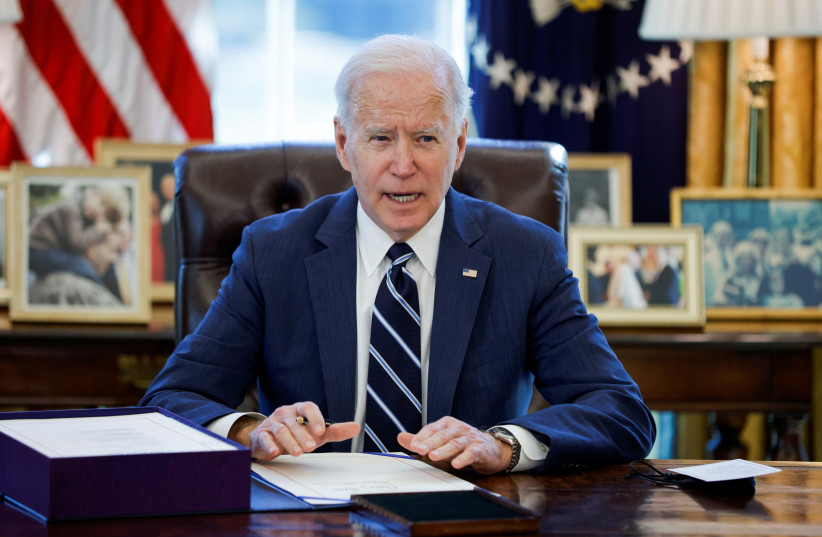Here’s an item that won’t affect your tax bill unless you happen to be Google, Facebook, Apple or one of the other 100 or so most prominent companies in the world. But it may affect your pocket if you invest in them or your pension fund does.
The item is a joint announcement on October 21 by the governments of the US, UK, France, Italy, Spain and Austria (with the bland title: “Joint Statement Regarding a Compromise on a Transitional Approach to Existing Unilateral Measures During the Interim Period Before Pillar 1 is in Effect.”
If you missed it, one of the world’s leading financial journals also missed it.
Background – a new tax is born – DST
US President Joe Biden’s administration is hurrying to wrap up an OECD package of income tax proposals, known as the Two Pillar Package. It would help pay for investment in US infrastructure of $2-3 trillion. In short, big bucks.

Pillar 1 proposes to shift some taxable income of large multinationals to the country where customers are located if their annual global revenues exceed €20 billion. Pillar 2 proposes a global minimum corporate income tax rate of 15%. Currently, 136 countries have signed up for the OECD Two Pillar package.
But there is one obstacle to the two pillars. Several countries have jumped the gun and have started to impose Digital Service Tax, or will soon do so. This prompted the Biden administration to threaten trade tariff sanctions on DST countries.
DST is considered bad because it is a second tax on internet sales over and above VAT/sales tax.
Worse still, VAT and sales tax generally cannot be credited against income tax in any country, resulting in double or triple taxation.
It is not Biden’s fault he came late to the OECD Two Pillar Package party – it came up last year, and US president Donald Trump’s administration suspended consideration of the package indefinitely. This delay prompted many countries to adopt a DST tax regime “unilaterally.”
DST rates imposed or proposed (subject to detailed rules, of course) in the countries covered by the joint statement are UK 2%, France 3%, Italy 3%, Spain 3%, Austria 5%.
DST rates in other countries not covered by the joint statement include: India 2%-6%, Turkey 7.5%, Belgium 3%, Canada 3%, Czech Republic 5%, Hungary 7.5%.
What the joint statement says
The six countries agreed to a compromise to head off US trade sanctions. Assuming most countries adopt Pillar 1 by 2024 in place of DST, the extra corporate income tax caused by Pillar 1 in the first year may be credited against DST until the DST is wiped out. But not all the DST – because a formula restricts the DST wipe-out to DST in 2022 and 2023 minus double the first year’s Pillar 1 tax. Go figure that one out.
Expected effect
We did figure it out. We crunched some numbers simulating the joint statement rules and made a few hopefully reasonable assumptions.
We predict that affected multinationals may be tempted to do some tax planning that may impact their reported earnings in the coming years. And economic theory tells us that changes in reported earnings affect stock market stock prices many times over – for example, 15 times if the price/earnings (P/E) ratio is 15.
So, such tax changes may move the stock markets in the next few years.
Comments
The joint statement leaves many open issues, for example:
Why did six governments agree to such a volatile tax mechanism? Will it happen?
Will your investments fluctuate? Or will you take action to profit from it all?
Once DST is repealed in a country, will its government keep refunding DST wiped out?
What about the countries not a party to the joint statement? Double or triple taxation?
Will smaller multinationals with global annual revenue below €20b. be slammed by double or triple taxation?
Extreme complexity.
Multilateral tax treaties may be used to expedite the implementation of all these measures and to spell out more detailed aspects. As yet, nothing has been published.
Taxation without representation?
Disputes are likely, the dispute resolution procedure across the 136 countries is still unclear.
What’s needed?
If civil servants in an ivory tower drafted the joint statement, prepare like you would for the Tower of Babel. Consult both your tax adviser and your investment adviser.
leon@h2cat.com
As always, consult experienced tax and other advisers in each country at an early stage in specific cases.
The writer is a certified public accountant and tax specialist at Harris Horoviz Consulting & Tax Ltd.
